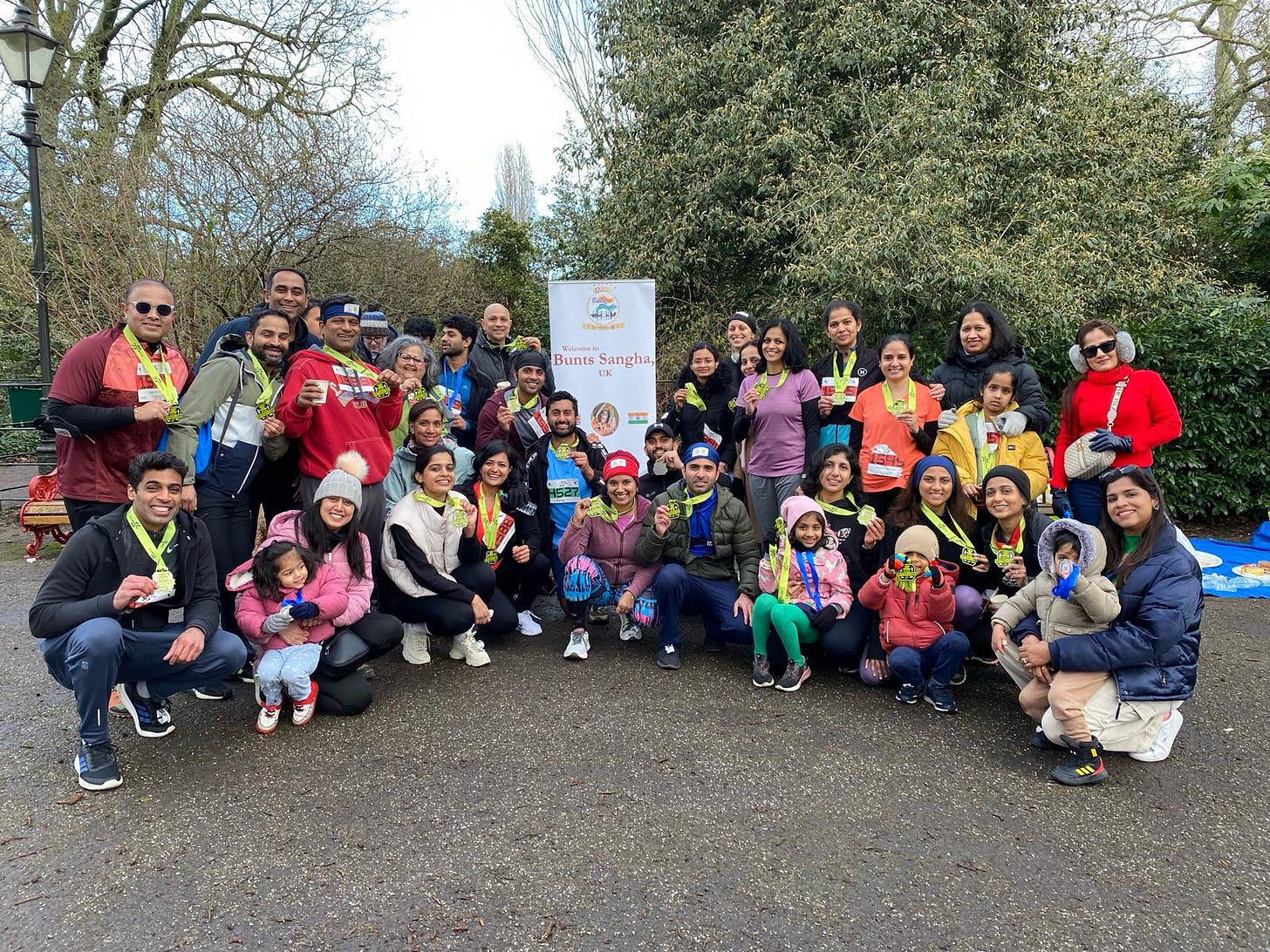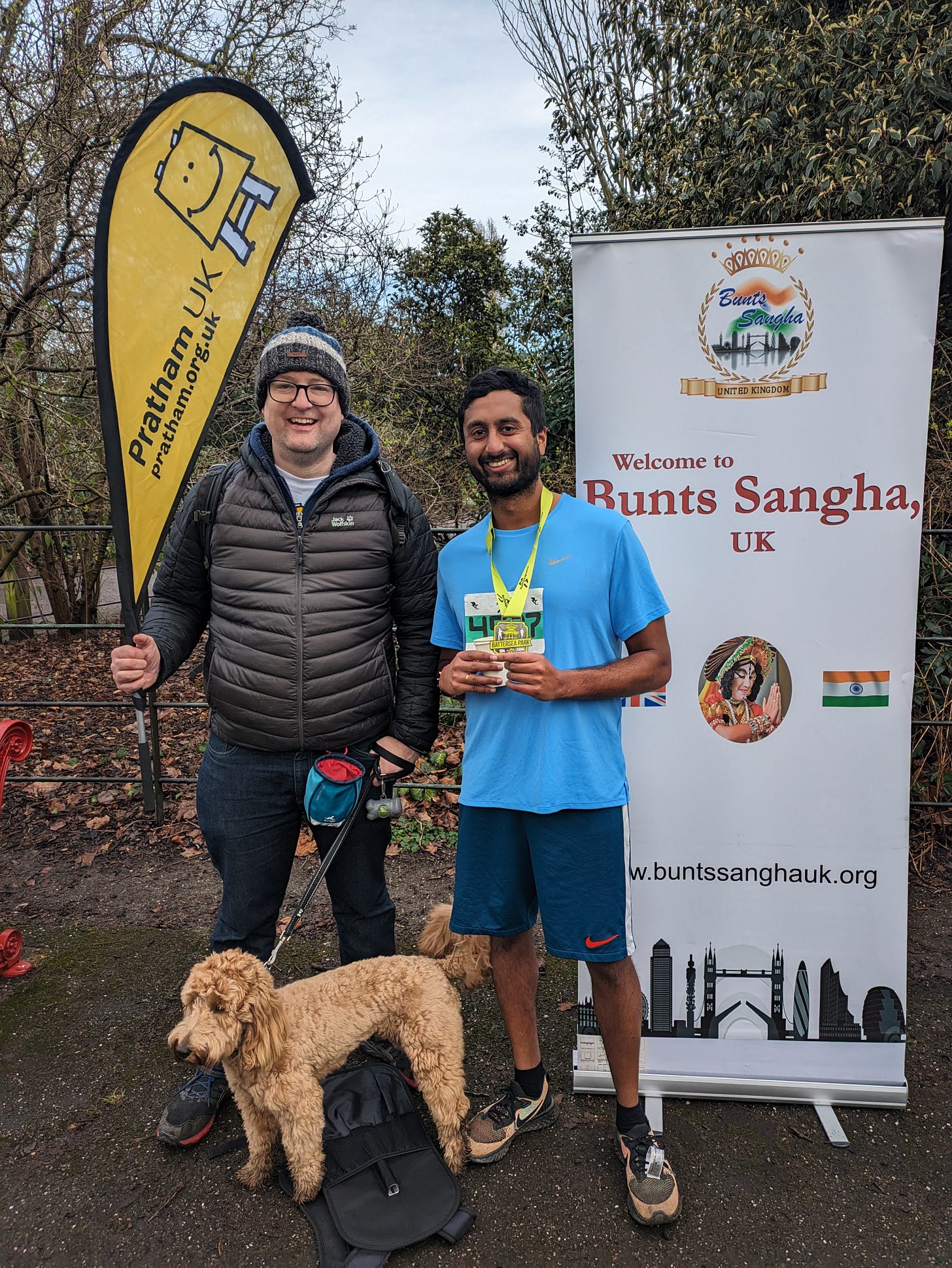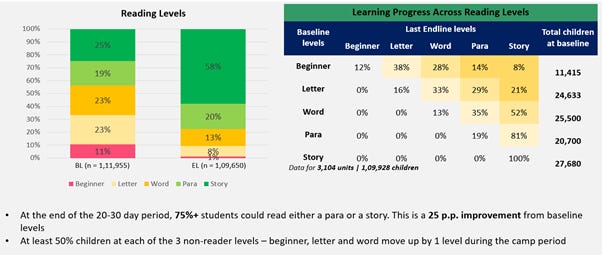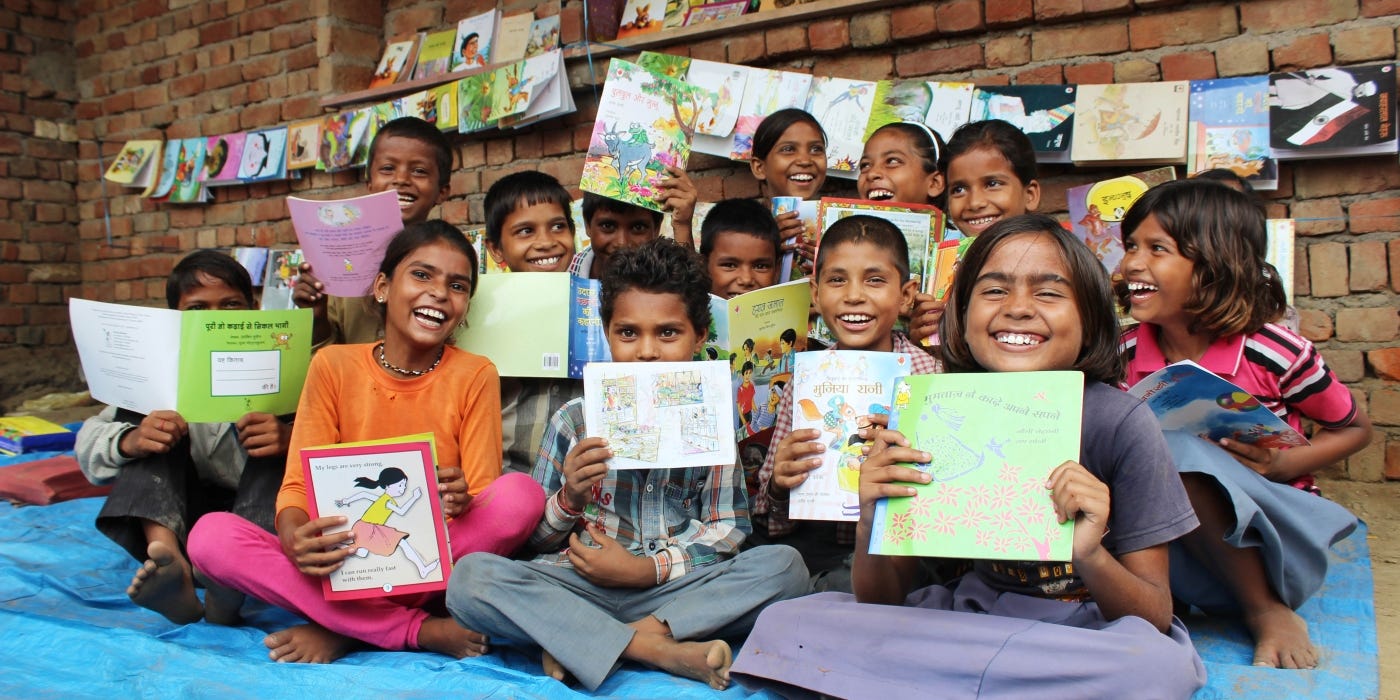Welcome to our Chai with Shosh series, where every Tuesday, we dive into the stories within India's startup and investing landscape. Drawing from my personal encounters, this series aims to shine a light on the Indian startup and VC ecosystem, making it relatable to audiences in UK and beyond.

Fundraising often conjures images of startup pitches and venture capital deals. However, this week, we're casting the spotlight on a different aspect of fundraising—supporting non-profit initiatives that produce societal changes across UK-India.
Introduction
During the weekend, I participated in a 10km Park Run, proudly representing Pratham UK, a branch of one of India's foremost education-focused NGOs.
I caught up with Nick Sankey, who leads Pratham UK. Our conversation revolved around the inspiring work Pratham undertakes and scaling such operations. It was a memorable experience, being part of this event alongside our cultural community, ending up, of course, in enjoying cups of masala chai together after the race! So, inspired by the run and the funds we raised, I’m going to highlight Pratham's impactful journey in this week's feature.

History
Founded in Mumbai in 1995, Pratham emerged from a mission to ensure quality education for every child, particularly those in India's underprivileged sectors.
Its inception was a response to the dire need for preschool education in Mumbai's slums, a pioneering initiative supported by UNICEF and the Mumbai Municipal Corporation. Pratham stands for "first" in Sanskrit, symbolising the foundational step towards a brighter future for countless children.
From its early days, Pratham has been a beacon of hope, transforming educational landscapes by introducing transformative learning interventions. The UK chapter, established in 2003, has significantly contributed to raising awareness and funds, supporting Pratham's leading educational initiatives in India.
Mission
Pratham is built on the foundational belief that every child deserves quality education.
The challenge includes:
More than 50% of India's fifth graders cannot read a second-grade text. That means 100 million children in India can’t read and write.
India accounts for 28% of the world's working age population. However, only 2% of its current workers have received any formal training.
Almost 80% of India's girls drop out of school before reaching grade 8.
"Pratham's impact on the lives of millions of kids has been tremendous; it is quite simply an exceptional, best-in-class organisation that has managed to scale across India."
Nobel Laureate Abhijit Banerjee
Transformative Outcomes
Pratham's programs have reached over 75 million children, significantly impacting literacy and numeracy skills across India. Their Annual Status of Education Report (ASER) has become an invaluable tool in assessing learning levels, influencing education policy and practice not just in India, but globally. Pratham has expanded to become a global presence in six other countries, including the UK.
“ASER is more than a survey. By making children’s learning visible to parents, teachers and policymakers, it has become a mobilising force for better-quality education. It has helped to turn the government’s focus beyond enrolment, toward learning. And Pratham is not just diagnosing the problem. It is also introducing simple methods that teach children basic skills. Because of ASER, communities and now states are adopting these methods in learning camps and during the school day.”
- Tina Rosenberg in The New York Times on Pratham’s Annual Status of Education Report (ASER)
After instruction in a Pratham learning camp, there is significant improvement in children’s reading levels (as shown below). Pratham have developed a model that can help a child catch up with reading and maths in as little as 30 days for just £14.

How to Scale
The scaling of operations is a critical topic that transcends industries, affecting not only tech startups but also non-profit organizations.
During our conversation, Nick outlined strategic plans to expand their reach by forging corporate partnerships and tapping into new funding streams through grants.
These alliances aren't solely about financial contributions; they represent a mutual exchange of value through shared mission statements. Partners like Drink Me Chai (on brand!) and Nord Green watches, are prime examples of how businesses can meaningfully contribute to Pratham's mission.
Concluding Thoughts
The recent Park Run felt more than a fundraising event; it displayed the power of community and shared commitment to making a difference. Pratham's journey from a local initiative to a global force in education reform illustrates the potential of scaling operations with a focused mission.




